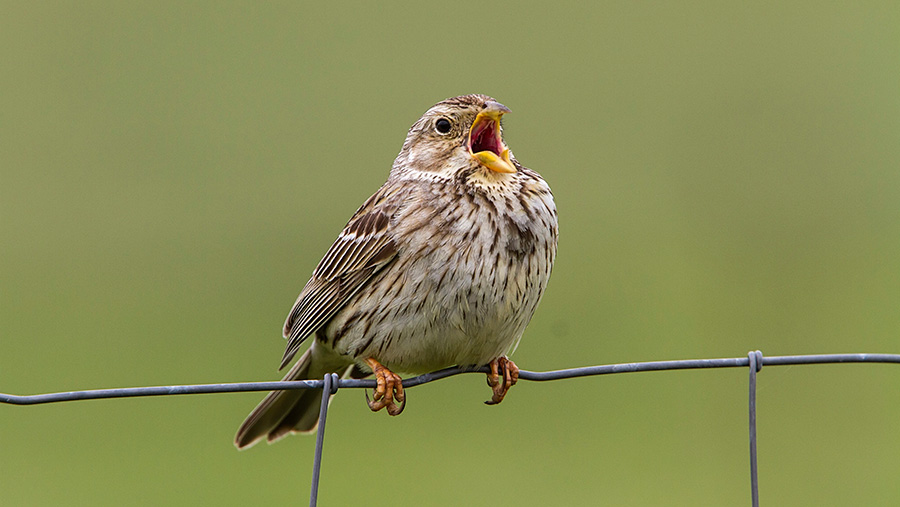Intensive farming linked to wildlife decline
 © FLPA/David Hosking/REX/Shutterstock
© FLPA/David Hosking/REX/Shutterstock A major decline in British wildlife species over the past 50 years has been linked to intensive farming practices.
One in 10 UK species are threatened with extinction, according to the State of Nature report, which was funded by more than 50 conservation groups and charities.
But farm leaders have disputed the findings, arguing agriculture has become less intensive over the past 25 years with farmers doing much to promote wildlife.
See also: RSPB seeks more environmentally friendly farm policy
The report revealed that more than half (56%) of UK species studied have declined since 1970.
More than one in 10 (1,199 species) of the nearly 8,000 species assessed in the UK are under threat of disappearing altogether, it said.
Species under threat include the turtle dove and corn bunting, according to the study, which was published on Wednesday (14 September).
The report acknowledged there are “many inspiring examples of conservation action” that are helping to turn the tide.
But it said more must be done to “put nature back where it belongs”.
The report will be launched by Sir David Attenborough in London.
Sir David said: “The future of nature is under threat and we must work together; governments, conservationists, businesses and individuals, to help it.
“Millions of people in the UK care very passionately about nature and the environment and I believe that we can work together to turn around the fortunes of wildlife.”
Industry hits back
Other causes acknowledged in the report, such as urbanisation, climate change or increasing predator pressure need greater attention Guy Smith, NFU
But NFU vice-president Guy Smith said farming had become less intensive, with growers and livestock producers doing much to promote wildlife.
“As the report acknowledges, agricultural policies of the past did focus on maximising food production resulting in the intensification of farming in the years after the Second World War,” he said.
“However, since the early 1990s, in terms of inputs and in terms of numbers of livestock and area of crops grown, British agriculture has not intensified, in fact it’s the reverse.
“Therefore it makes little sense to attribute cause and effect to ‘the intensification of agriculture’ in the UK in the last quarter of a century when there hasn’t been any.
“Other causes acknowledged in the report, such as urbanisation, climate change or increasing predator pressure need greater attention.”
Playing their part
British farmers had embraced the conservation agenda, said Mr Smith.
They had planted or restored 30,000km of hedgerows, planted wildflowers on field borders and were using less fertiliser and pesticides than ever.
Greenhouse gas emissions from agriculture had fallen by 16% since 1990, said Mr Smith.
In addition, two-thirds of farmers had signed up for Britain’s traiblazing and world-renowned agri-environment schemes, he added.
Co-operation
The Country Land and Business Association (CLA) called for environmental groups to work with farmers to call for the introduction of a “world-leading” farming and environment policy.
It was important this was in place when support provided by the CAP came to an end in 2020, said CLA deputy president Tim Breitmeyer.
“The report makes sobering reading and paints a clear picture of significant decline over 40 years,” he said.
“It reminds us how much there is to do to reintroduce habitats and species into our natural environment and protect them.
“However, it also shows encouraging signs of successful population growth in certain species, and overall, a change in trends that can be built upon.
“It is encouraging to see the effort farmers and others have put in over recent years has started to bear fruit and that this effort is making a difference.”
For a full analysis of the State of Nature report, see this week’s Farmers Weekly magazine, on sale and online at Fwi.co.uk on Friday (16 September) . Subscribe to Farmers Weekly
